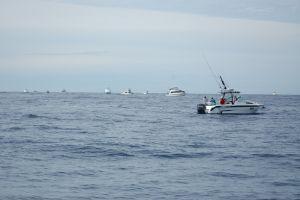
A CRITICAL piece of research being conducted by the CSIRO as part of the National Carp Control Plan (NCCP) will provide stakeholders with confidence that an informed decision will be made by the government at the end of 2018 on whether to release the carp virus, Cyprinid herpesvirus 3 (CyHV-3).
The NCCP is a $15 million initiative being prepared by the Fisheries Research and Development Corporation on behalf of the Australian Government to explore the viability of using the carp virus to control carp in Australia’s waterways.
To help inform decision-making on carp biocontrol, the CSIRO is conducting research into possible ecological and social risks associated with the use of the carp virus in Australia.
The risk assessment will identify key stakeholders along with social and ecological values that could potentially be directly or indirectly impacted by the possible introduction of the carp virus for control of this pest species.
“The risk assessment will help facilitate decision-making, so it will consider the range of possible impact pathways, be transparent about the uncertainties and assumptions, and be as explicit and quantitative as possible,” CSIRO researcher Brent Henderson says.
“This research aims to provide confidence to the Australian public, regulators and decision-makers that the ecological and social risks have been systematically and transparently assessed,” Dr Henderson says.
The CSIRO team says the research will also measure social dimensions of risk associated with viral biocontrol.
“Some of the social factors we will look at include people’s values, cultural habits, and beliefs around carp and the biocontrol of carp,” Dr Henderson says.
“This research is important as we need to engage with the community and understand the possible social risks perceived by stakeholder groups, including the general public at the ground-level. This will help ensure that we can develop a plan that can address these aspects,” NCCP National Coordinator Matt Barwick says.
“So far, we are learning that while people are seeking further information on the logistics and practicalities of carp control – which our research program will provide – the message we’re receiving is that people are keen to learn more about the concept, and carp are generally considered to be an unacceptable blight on our aquatic landscapes,” Mr Barwick says.
Some of the other major research projects now underway include: a biomass study to provide an estimate of carp density in Australian waterways; completion of final trials testing susceptibility of non-target species to the carp virus; and strategies for cleaning up carp that succumb to the virus if released.
In addition to research a comprehensive stakeholder engagement plan will be implemented over the next 18 months to consult with, and seek feedback from, the general public and special interest groups.
To be kept up to date on the NCCP please visit www.carp.gov.au and sign up to the newsletter or visit the contact us page to leave feedback.
















